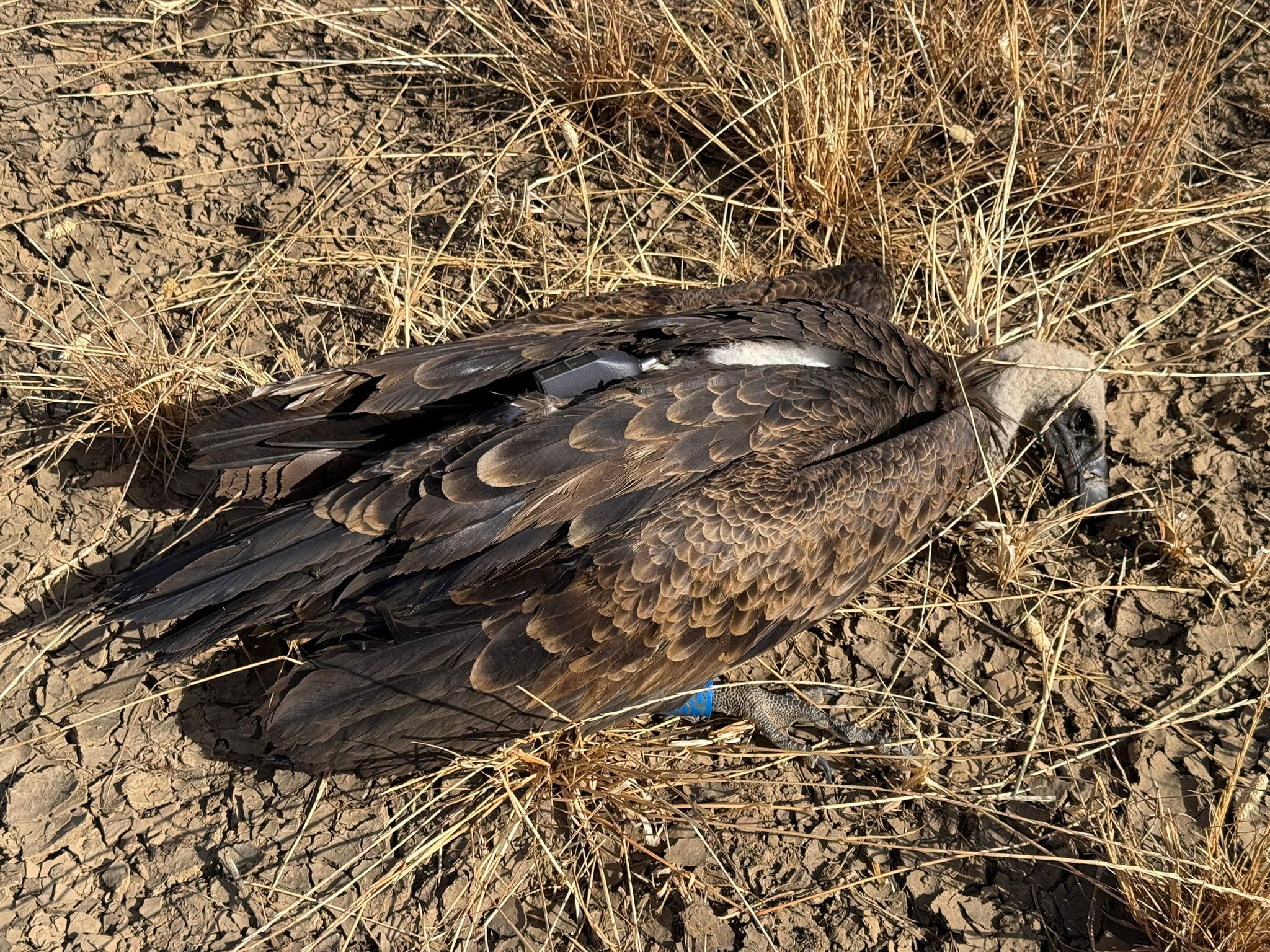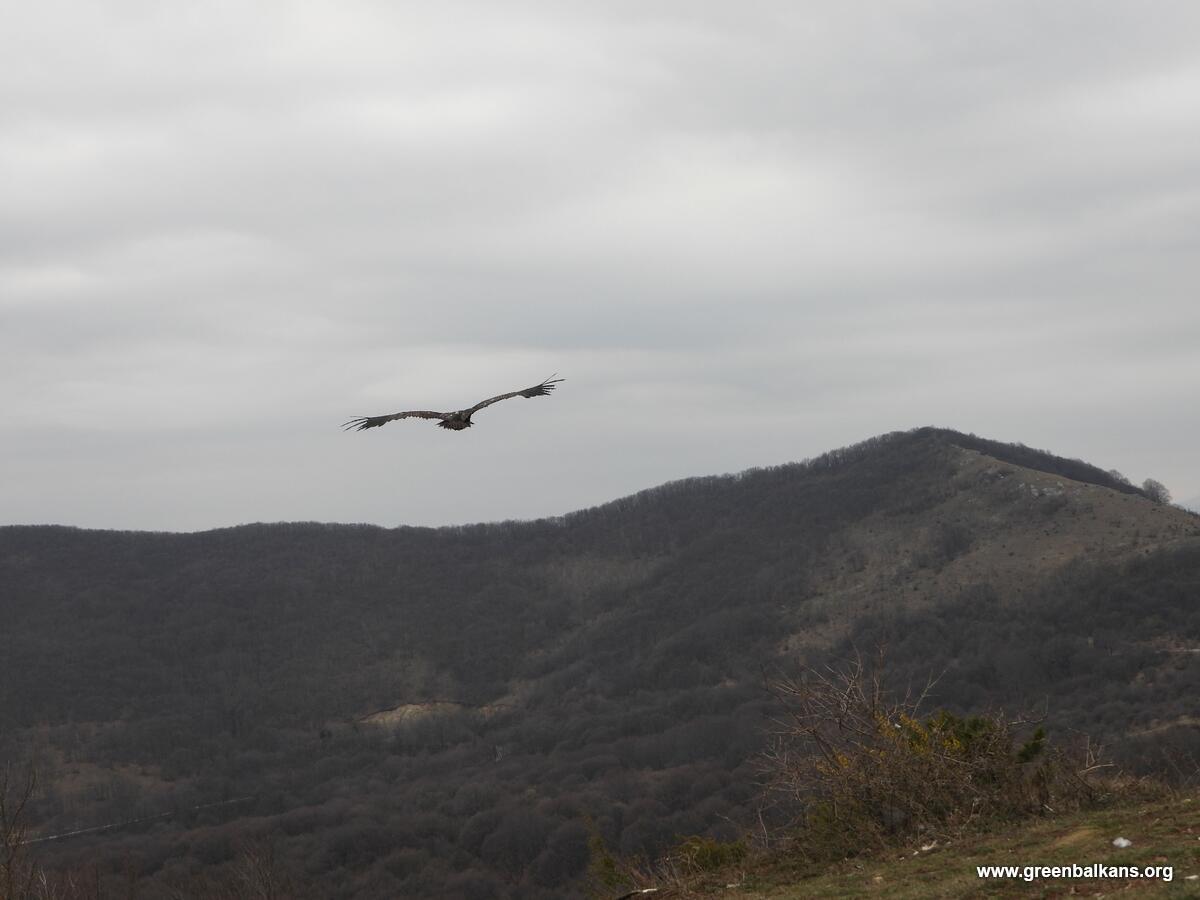Good news from the Cinereous Vulture colony (Aegypius monachus) in the Malcata Nature Reserve, Portugal, with the first wild hatchlings of the season confirmed and a new nest discovered. LIFE Aegypius Return project partners and rangers from the ICNF (the Portuguese Institute for Nature Conservation and Forests) gathered in the Nature Reserve to exchange monitoring methodologies and preliminary results of this breeding season.

The first Cinereous Vulture chicks hatched in Malcata this season
Earlier in May 2023, LIFE Aegypius Return project partners VCF, ATN, Palombar, SPEA and LPN, responsible for monitoring Cinereous Vulture colonies across the border with Portugal and Western Spain, gathered in Serra da Malcata for a technical meeting. The meeting with the local ICNF Rangers was an opportunity to exchange experiences on monitoring methodologies, nest detection and prospection and to build capacity on technical aspects such as bird behaviour interpretation and estimation of chick ages.
The meeting included several visits to the Cinereous Vulture colony in Malcata. With the use of telescopes to keep a safe distance from the nests, project partners were able to confirm the first wild hatchlings of the season.

One new Cinereous Vulture nest confirmed in the Malcata Nature Reserve
To confirm the previously known nests and identify potential new breeding sites in Portugal, monitoring actions within the project started in February. In the northeastern part of the country, the two existing nests were reoccupied this season, and at Herdade da Contenda, a new nest was identified during a technical visit of the LIFE Aegypius Return project partners. At Serra da Malcata, monitoring activities are being led by ICNF rangers, in collaboration with the local NGOs ATN and Rewilding Portugal. The recent technical visit to Malcata confirmed a new nest with a chick, so the number of known nests in Serra da Malcata is now 10, five of them with confirmed reproduction in this season – an encouraging result for the ambitious aim of doubling the number of existing breeding pairs in Portugal by 2027.
In Portugal, there are four colonies with 40 Cinereous Vultures breeding pairs, located in the International Douro Nature Park, Serra da Malcata Nature Reserve, International Tagus Nature Park, and Herdade da Contenda. To increase nest safety and attract new breeders, project partners will install 120 new artificial nesting platforms in areas with high breeding potential and repair 105 existing nests. At Herdade da Contenda, one nest was occupied after the first nest interventions in January 2023.
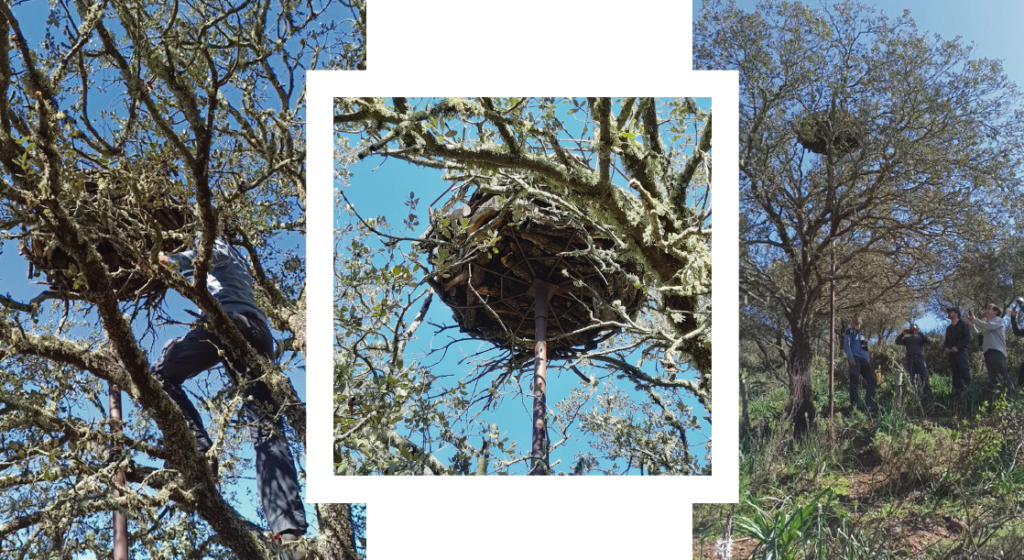
Increasing food availability
The technical meeting was also an opportunity to get acquainted with the different regions’ specific characteristics and share best practices for setting up and maintaining vulture feeders. The project foresees the implementation of 2 new vulture feeders and 66 unfenced feeding areas for scavengers in Portugal and Spain, which will require close collaboration with extensive livestock producers and the veterinarian authorities.
Improving breeding success and consolidating Cinereous Vulture colonies in Portugal
The project team will manage and enhance 570 ha of habitat around existing breeding colonies to prevent forest fires and mitigate human disturbance affecting the species’ productivity. To accelerate the return of the species, at least 20 Cinereous Vultures coming from wildlife rehabilitation centres will be released.
The first Cinereous Vulture rehabilitated, Zimbro, was released in March in northeastern Portugal, which holds the most fragile colony with only two breeding pairs. Later this year, an acclimatisation facility will be built in the same area for the upcoming soft releases.
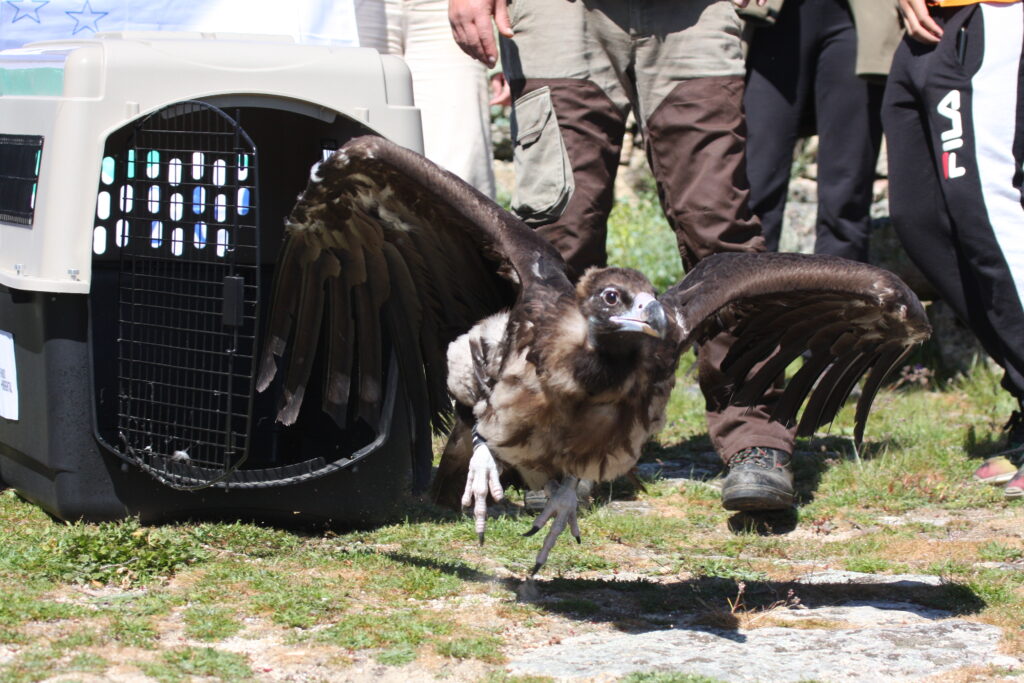
Downgrading the national status of Cinereous Vultures from Critically Endangered to Endangered in Portugal
For almost four decades, the species was extinct in Portugal (as a breeding species). Thanks to the conservation efforts of many organisations in Iberia, Spanish breeding colonies started recolonising Portugal in 2010. Four colonies were established but are still very fragile and the species is still listed as Critically Endangered in Portugal. The LIFE Aegypius Return Project partners are working to improve the conservation status of the Cinereous Vulture and enhance connectivity between the colonies, to downgrade the conservation status to Endangered.
The monitoring actions will continue until the end of the breeding season. Keep up to date with the latest project developments on our social media accounts and on the project’s dedicated webpage.
The LIFE Aegypius Return project
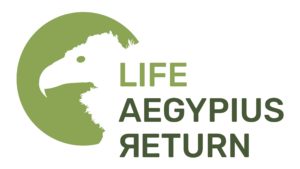
The LIFE Aegypius Return is a 3.7 million project, co-financed by the European Union’s LIFE Programme, whose success relies on the involvement of all relevant stakeholders and the extensive collaboration of the leading project partner, the Vulture Conservation Foundation (VCF), with all local partners: Palombar – Conservação da Natureza e do Património Rural, Herdade da Contenda, Sociedade Portuguesa para o Estudo das Aves, Liga para a Protecção da Natureza, Associação Transumância e Natureza, Fundación Naturaleza y Hombre, Guarda Nacional Republicana and Associação Nacional de Proprietários Rurais Gestão Cinegética e Biodiversidade.

